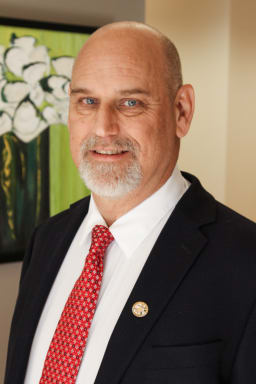Special interests
If you’ve got an agenda, you’ve gotta have a PAC. A political action committee is the device of choice for individuals, corporations, developers, teachers, and many others to further their interests by funneling money or other support to political candidates. While a PAC is limited by state and federal law on how much it can directly contribute to a campaign, because it’s not run by a political party or individual candidate, on its own it can spend an unlimited amount of money on elections. Charlottesville is home to several PACs that have raised— and contributed—millions for causes ranging from electing progressive candidates to keeping Delegate Rob Bell in office. Here’s our roundup:
Progressives for Cville
Founded in 2018 by UVA prof and Black Lives Matter organizer Jalane Schmidt and Jefferson School African American Heritage Center staffer Olivia Patton, Progressives for Cville wants small donors to support candidates who will work for affordable housing and against racial inequity. The PAC supports City Council candidate Michael Payne.
Progressive Change Campaign Committee
Charlottesville native Stephanie Taylor and UVA Law grad Adam Green co-founded Progressive Change in 2009, the largest locally founded PAC, with a million-member grassroots organization that’s raised $29 million. Its website is boldprogressives.org, and this national PAC was a fan of Senator Elizabeth Warren’s platform long before she became a presidential candidate.
Virginia First PAC
House Minority Leader David Toscano’s PAC has donated more than $1 million to help elect Democrats to the House of Delegates.
Clean Virginia Fund
Investor Michael Bills has poured over $2 million into state elections. Last year he founded a PAC to promote clean energy and thwart the influence of Dominion Power on the electoral process by supporting candidates who refuse to accept money from utilities they would regulate. Bills has put $205,000 into the PAC, according to the Virginia Public Access Project, and donated $166,000 to candidates.
Road Back/Democratic Road Forward PAC
The late delegate Mitch Van Yahres, who held the 57th District seat for 24 years, founded the Road Back PAC in 2002 to help other Dem candidates. The PAC was dormant for several years after his death in 2008, and was reborn as the Democratic Road Forward PAC in 2013 to train Democratic hopefuls and their staffs. “We don’t give them money,” says former vice-mayor Meredith Richards, but this year 19 candidates the PAC schooled in fundraising and fieldwork are running.
Virginia’s List
Former Charlottesville School Board chair and 17th Senate District candidate Amy Laufer’s PAC has raised almost $125,000 since 2015 to support Democratic women running for state office, according to VPAP.
Virginians for Rob Bell
This committee was formed in 2012, ahead of Bell’s unsuccessful run for the GOP attorney general nomination in 2013. It’s received $560,000 in contributions, and is currently sitting on $294,000, says VPAP.
Forever Albemarle
Maintaining the county’s rural areas and supporting farmers is the goal of Forever Albemarle, which donated to Republican Board of Supervisors candidates Duane Snow and Rodney Thomas in 2009. The PAC has been less active since then, but it made a $545 donation to the White Hall Ruritans in 2017, according to Virginia Department of Elections.
Quote of the week
“To me, any legitimate conversation about reparations starts with education.” —Pharrell Williams, May 17 at UVA’s Valedictory Exercises
In brief
Trick-or-treat
Police Chief RaShall Brackney asked City Council on May 20 to repeal the 57-year-old ordinance that prohibits kids over the age of 12 from knocking on neighbors’ doors and demanding candy on Halloween. She’s also calling for a 10pm curfew on October 31, and council will vote on the matters in June.
Another A12 lawsuit
Bill Burke came to Charlottesville in August 2017 with a plan to protest a white supremacist rally, and left with a string of mental and physical injuries from being hit by James Fields’ car. Now, in a federal lawsuit filed in his home state of Ohio, he’s asking for $3 million in compensatory damages.
Free advice
The Charlottesville Albemarle Bar Association and Legal Aid Justice Center have hired their first pro bono coordinator. Kristin Clarens has already racked up “countless hours” of pro bono work on immigration, human rights, and refugee resettlement, according to a press release.
Long goodbye
 Two-time Super Bowl champion with deep Charlottesville roots Chris Long is hanging up his helmet after 11 NFL seasons. The UVA and St. Anne’s-Belfield grad chosen as the league’s 2018 Walter Payton Man of the Year is also known for his humanitarian work: Since starting his Waterboys charity, he’s funded approximately 60 wells (and counting) in Africa.
Two-time Super Bowl champion with deep Charlottesville roots Chris Long is hanging up his helmet after 11 NFL seasons. The UVA and St. Anne’s-Belfield grad chosen as the league’s 2018 Walter Payton Man of the Year is also known for his humanitarian work: Since starting his Waterboys charity, he’s funded approximately 60 wells (and counting) in Africa.
Body found, arrest made
Police say 24-year-old Cody Jason Cappel, whose body was found on the Rivanna Trail behind Peter Jefferson Parkway May 16, was shot multiple times. He appeared to have been living in a tent along the river near 49-year-old Allan Ray Via, who has been charged with second degree murder and possession of ammunition by a convicted felon.
Signs of change
Despite the landmark 1954 Supreme Court ruling in Brown v. Board of Education, which found public school segregation unconstitutional, Albemarle County didn’t integrate for another nine years.
In 1963, 26 black students enrolled in three county schools for the first time: Stone-Robinson Elementary, Greenwood, and Albemarle High. And on May 17, county administrators unveiled new signs at each location that honor the first black attendees of those schools.
Superintendent Matt Haas thanked local historian and filmmaker Lorenzo Dickerson, who spearheaded the project.
In attendance at the unveiling were multiple members of the Albemarle 26, including the first black AHS graduate Vincent Kinney, who donned his cap and gown in 1964.
“I get a little bit of angst at things like this because it focuses attention on us and it does not emphasize the fact that we were overcoming something in the community,” said Kinney. “By the time I came to Albemarle [High], I had already been scarred…by the white privilege that existed and still does to a lesser extent today.”
When students see the new sign, he says he hopes they don’t take it for granted.
Adds Kinney, “I hope they see that the level of near equality that’s shared by all now has been fought for.”





